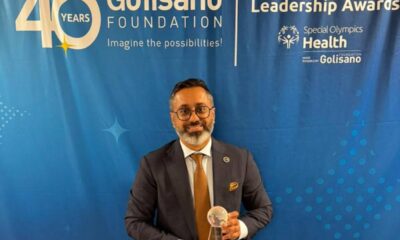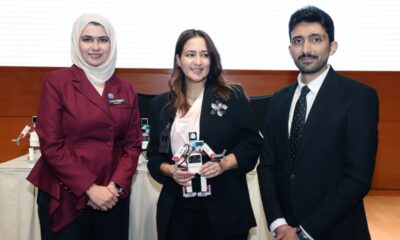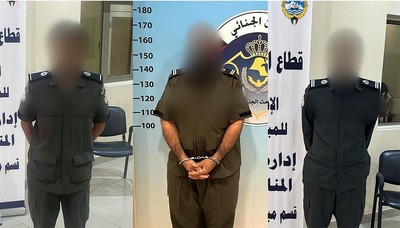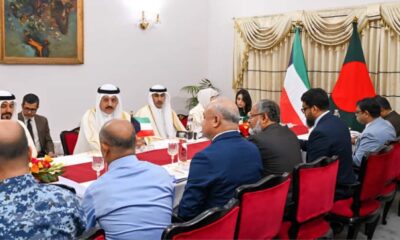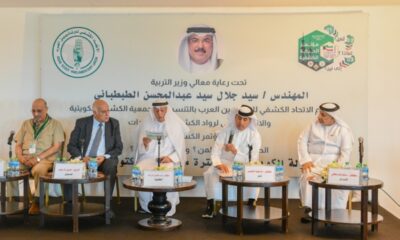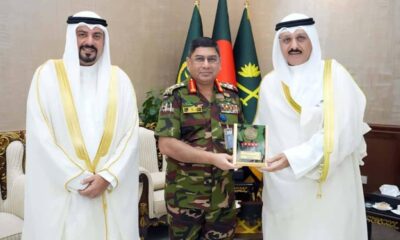KUWAIT: On the occasion of President Recep Tayyip Erdogan’s official visit to Kuwait, Ambassador Tuba Nur Sönmez of the Republic of Turkey to Kuwait highlighted the depth of Turkish-Kuwaiti relations and the growing strategic partnership between the two countries.
Kuwait Times: How do you assess the current level of bilateral relations between Kuwait and Turkey?
Ambassador: Turkish-Kuwaiti relations represent a model example of successful bilateral ties. Our friendly relations are built upon shared values, common interests, a strong political will at the leadership level, and deep-rooted bonds of brotherhood between our peoples. We consider Kuwait one of Turkey’s most reliable partners in the Gulf region. Our countries enjoy multidimensional cooperation mechanisms that cover various fields, including trade, defense, tourism, and investment. There is also a growing and strengthened political will at the leadership level. Both President Recep Tayyip Erdogan and His Highness the Amir Sheikh Meshal Al-Ahmad Al-Jaber Al-Sabah attach great importance to the friendship between our countries.
This political determination enables our relations to develop along multiple tracks. His Highness the Amir’s visit to Turkey last year was highly successful. During the visit, we signed six agreements in the areas of defense, trade, investment, diplomacy, and culture, and we established a joint strategic dialogue mechanism, elevating our relations to the level of a strategic partnership. I regard this partnership between Turkey and Kuwait as being of immense value and significance. In difficult times, both countries have always stood by each other and provided support without hesitation — a true testament to the sincerity and depth of our longstanding friendship and mutual respect.
Kuwait Times: What are your expectations from the upcoming visit of the President of the Republic of Turkey to Kuwait?
Ambassador: His Highness the Amir Sheikh Meshal’s first official visit outside the Arab world after assuming leadership to Turkey was a great source of pride for us. It was a highly significant visit that produced tangible results, addressing various outstanding issues in our bilateral relations, discussing regional matters, and elevating our cooperation to a strategic level. As the Ambassador of the Republic of Turkey involved in this process, I take great pride and satisfaction in these achievements.
In fact, the Turkish President has visited Kuwait several times during the late Amir Sheikh Sabah’s reign. In this regard, the upcoming official visit of President Erdogan to Kuwait after seven years presents an important opportunity to sustain the momentum generated by last year’s visit and to further strengthen our bilateral ties. During this visit, we plan to sign a number of agreements and protocols in areas such as defense industries, energy, investment, transport, and trade, thereby reinforcing the legal foundation of our cooperation. Through these agreements, we aim to increase trade volume, diversify investments, and enhance collaboration across various fields.
We also reaffirm our support for Kuwait Vision 2035, led by His Highness the Amir, which aims to achieve sustainable growth. We seek to contribute to this vision through cooperation in areas such as development, energy, and infrastructure. Additionally, developments in Palestine and Syria, as well as recent regional dynamics, will be among the key topics on the agenda. This visit will offer both leaders a valuable opportunity to exchange views and discuss regional developments in depth.
Kuwait Times: What is the volume of trade exchange between the two countries?
Ambassador: The trade volume between our two countries reached around $720 million as of 2024. However, we believe this figure does not reflect the true potential of our bilateral relations. We have the capacity to double this figure within a short period.
Turkish sectors such as construction, defense, and tourism offer attractive investment opportunities for Kuwaiti investors. In line with this understanding, we organized the First Turkish-Kuwaiti Business Forum in November 2024, in cooperation with the Turkish Foreign Economic Relations Board (DEiK) and the Kuwait Chamber of Commerce and Industry. Around 50 companies from both countries participated, resulting in highly productive meetings. We plan to hold the forum again this year with the same partners, alongside the 11th session of the Joint Economic Committee to be hosted in Turkey next year.
There are currently over 400 Kuwaiti companies operating in Turkey across various sectors, while about 50 Turkish companies are active in Kuwait, particularly in construction. Turkish firms have played a significant role in Kuwait’s infrastructure projects, most notably the Terminal 2 Project at Kuwait International Airport. I believe that the partnerships we are building and strengthening today will serve as a model for other countries. We are also continuing to develop our cooperation in the field of investment. Turkish Minister of Treasury and Finance Mehmet Simsek paid an official visit to Kuwait in October 2024, during which ways to enhance mutual investment cooperation were discussed at the highest levels.
In addition, Burak Daglioglu, President of the Investment Office of the Presidency of the Republic of Turkey, and his accompanying delegation visited Kuwait on September 29-30, holding a series of meetings with various Kuwaiti institutions. The visit concluded with an investment reception hosted by the Turkish Embassy, which brought together Kuwaiti investors and business leaders with senior Turkish officials. We intend to continue organizing such events to further strengthen economic communication and cooperation between our two countries.
Kuwait Times: How do you assess the roles of Kuwait and Turkey in supporting stability and security in the region?
Ambassador: We share similar views and a common vision regarding the preservation of peace and stability in regional affairs. Kuwait plays a key role in maintaining regional stability, which we highly value. Meanwhile, recent developments in Palestine, Syria, and the ongoing tensions between Iran and Israel make regular dialogue and constant communication between our two countries even more essential. Hence, we place great importance on close consultation and cooperation with Kuwait on regional issues. In this context, we had the opportunity to comprehensively discuss regional developments during the ninth round of political consultations, held in Turkey in April 2025. The importance of this visit extends beyond bilateral relations. In this critical period for our region, consultation and cooperation between two partners that share the same vision, such as Turkey and Kuwait, are more vital than ever. Our shared vision aims not only to strengthen bilateral relations but also to promote wider regional cooperation.
Kuwait Times: What are the key areas of cooperation between Kuwait and Turkey?
Ambassador: Cooperation in the defense industry has gained significant momentum as a result of these exchanges. The Chief of the Turkish General Staff, accompanied by a senior military delegation, paid an official visit to Kuwait in January 2025, while the former Kuwaiti Chief of Staff visited Turkey on December 18, 2024. Moreover, Professor Dr Haluk Görgün, President of the Turkish Defense Industries Agency, visited Kuwait on November 11, 2024. In May 2025, a delegation from the Turkish Ministry of Health visited Kuwait to discuss cooperation in the health sector, focusing on experience exchange and collaboration across a broad and diverse agenda.
We attach particular importance to investment cooperation and aim to further deepen our partnership in this field. Since 2002, Kuwaiti investments in Turkey have reached approximately $2 billion, and through enhanced collaboration between our countries’ sovereign wealth funds, we aim to raise this figure significantly. Tourism and people-to-people relations are also of great importance. The customs and traditions of Kuwait and Turkey share many similarities, as hospitality, generosity, and kindness are values highly valued by both our peoples. Turkey welcomed around 300,000 Kuwaiti tourists last year, and we are working to increase this number in the coming years.
We are also pleased to see the growing interest in the Turkish language and culture within Kuwaiti society. Many Kuwaitis enthusiastically follow Turkish TV series and films, and many have expressed that they began learning the Turkish language through these productions. In this context, we see an increasing need to further promote the Turkish language and culture in Kuwait. Therefore, we hope to open a Yunus Emre Cultural Center in Kuwait in the near future, to serve as a platform for cultural exchange and interaction between our peoples.





